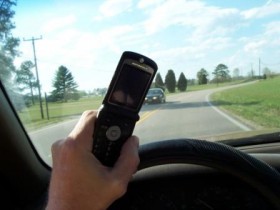We all know that car passenger tires need to be changed from time to time, either due to deterioration from normal wear and tear or due to some unpreventable damage from a nail or other hazard in the road.

What consumers may not know is that even before your tires show wear or damage they may already be dangerous or defective due to their age. Moreover, when you replace your tires, your new tires may be old and defective even though they haven't traveled a mile on the road. The tire industry has readily acknowledged that the older the tire the more likely it is to fail and cause serious injuries. Accordingly it is important to protect yourself and your loved ones by researching the age of the tires that are currently on your car and those that are to be installed.
Finding out the age of your tire is fairly simple, each tire is stamped with a Department of Transportation (DOT) number. Tires made after the year 2000 have a four digit code that conveys this information- the first two numbers will read from 01-52 which represents the week of the year they were manufactured; the last two numbers will, for example, read 05 which means it was manufactured in the year 2005. So a DOT number of 2005 means the tire was made in the 20th week of 2005.
You can read about how dangerous old tires are here, and find out more information about how to read the information on your tires here.

If you or a loved one has been hurt in a car crash you should promptly investigate whether the reason behind the crash is a defective tire. The personal injury trial attorneys of Tekell & Atkins, L.L.P. will assist you in this investigation free of charge.



